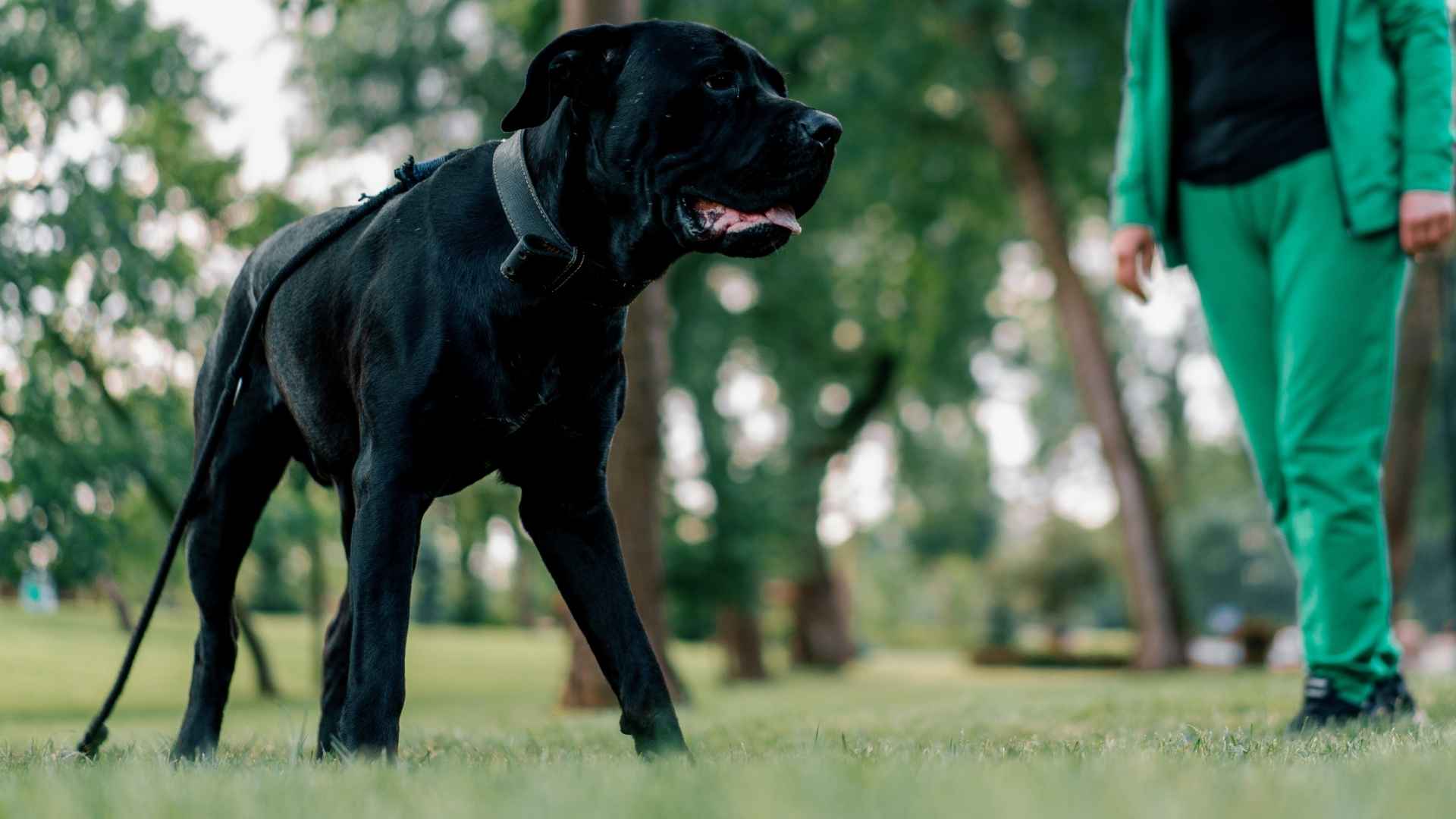Dogs have stood by humans for thousands of years—not just as companions, but as loyal protectors. While every pup can bark at the mailman, some breeds are instinctively brave, alert, and naturally protective.
These are the dogs that, without needing much encouragement, step between their families and danger with fearless confidence. But being “protective” doesn’t always mean aggressive.
In fact, the best guard dogs are often affectionate, deeply loyal, and remarkably intelligent. They know when to stand their ground and when to simply keep watch.
From muscular working breeds bred for guarding livestock to loyal companions who instinctively safeguard their families, these dogs combine courage with devotion in a way that makes them both loving pets and reliable protectors.
In this article, we’ll explore some of the bravest dog breeds that are naturally protective—and discover what makes each one so special.
Brave Dog Breeds That Are Naturally Protective
1. Cane Corso
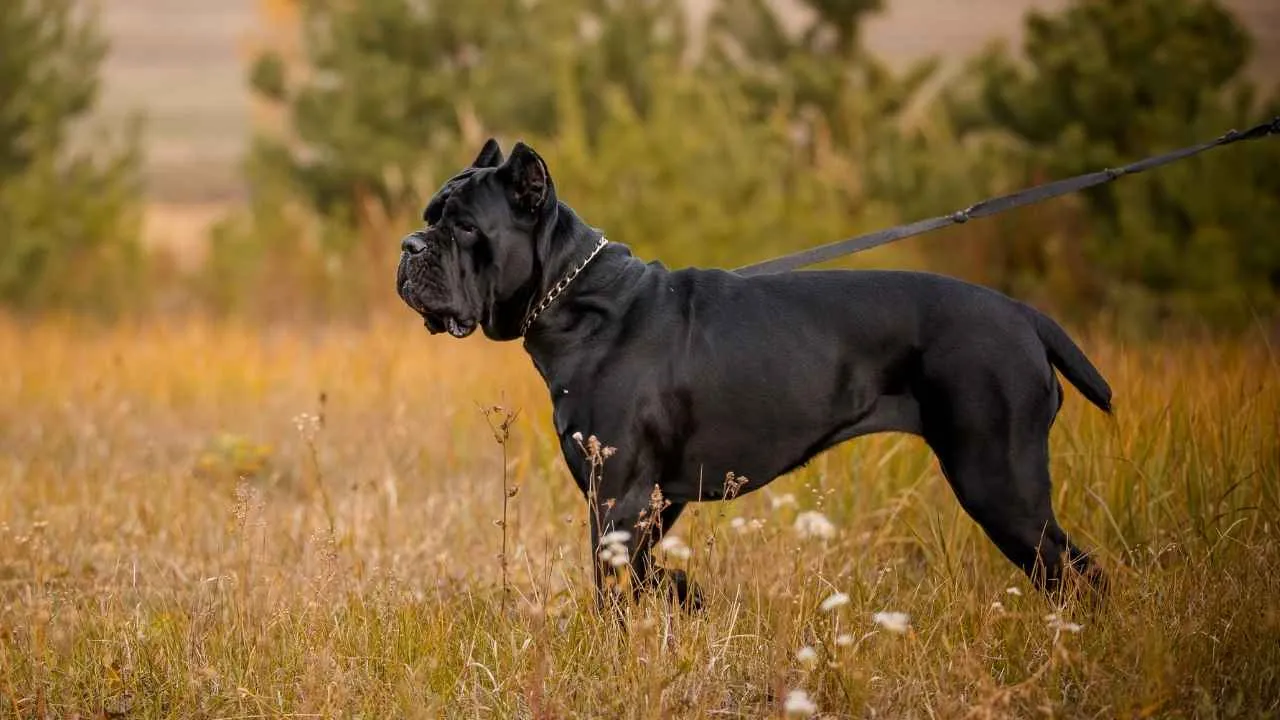
The Cane Corso is a muscular Italian mastiff breed originally developed for guarding property and working alongside farmers. Their build alone makes them a deterrent, but what truly sets them apart is their balance of power and sharp intelligence. A well-trained Cane Corso is not just a protector but also a steady and devoted family companion.
The Cane Corso is measured and deliberate and does not bark unnecessarily. They assess situations before responding, making them excellent at distinguishing between genuine threats and harmless activity. This thoughtful nature helps prevent unnecessary confrontations.
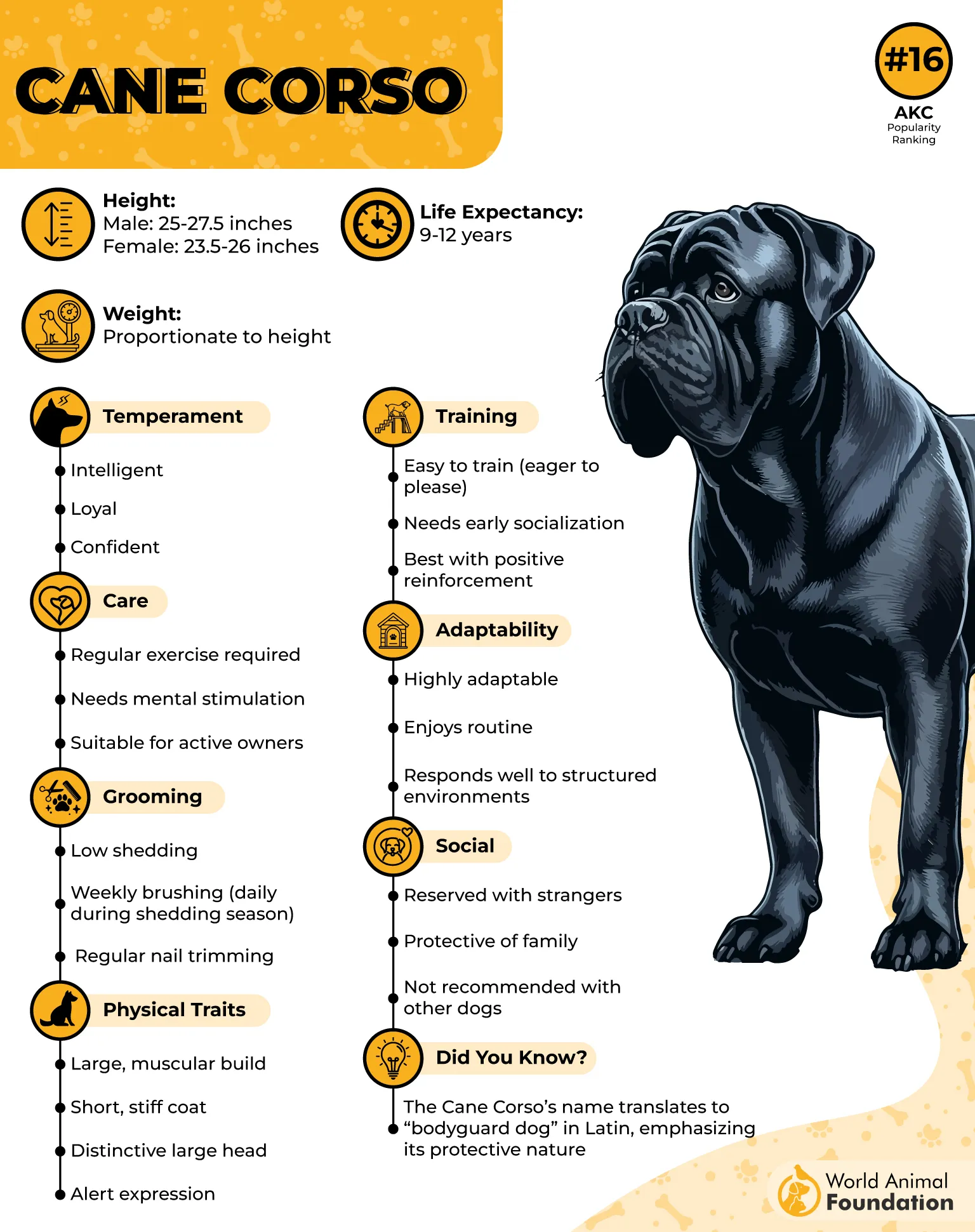
As guardians, Cane Corsos are fearless, and their loyalty runs deep. They form strong bonds with their families and are often happiest when included in daily routines. However, they are naturally wary of strangers, which enhances their protective instincts.
According to PetHealthNetwork, their intelligence demands consistent mental engagement. Without training and leadership, they can become stubborn or overly dominant. Structured socialization ensures they channel their instincts productively.
When properly raised, a Cane Corso balances bravery with affection. Families who provide clear guidance will find themselves with a loyal dog who is both loving at home and formidable when necessary.
Quick Tips
Begin obedience training early to reinforce discipline.
Provide daily physical and mental exercise to prevent restlessness.
2. German Shepherd
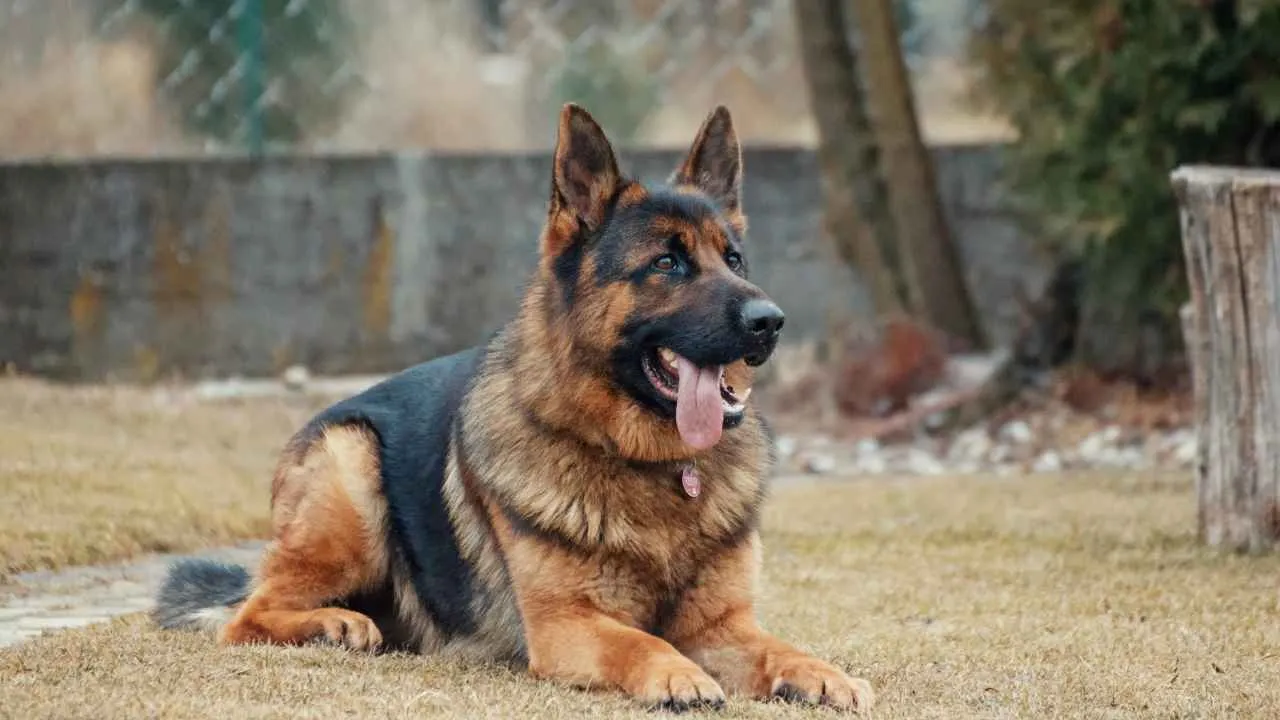
The German Shepherd is one of the world’s most recognized working dogs, celebrated for its courage and adaptability. Originally bred for herding, they now serve in roles ranging from police work to search and rescue. Their versatility makes them as reliable at home as they are in demanding professions.
These dogs are deeply loyal and naturally protective, often stepping forward without hesitation when faced with danger. Their bravery is legendary, which is why they remain the most popular guard dog breeds. Yet, beneath that protective edge lies a playful and affectionate personality within the family circle.
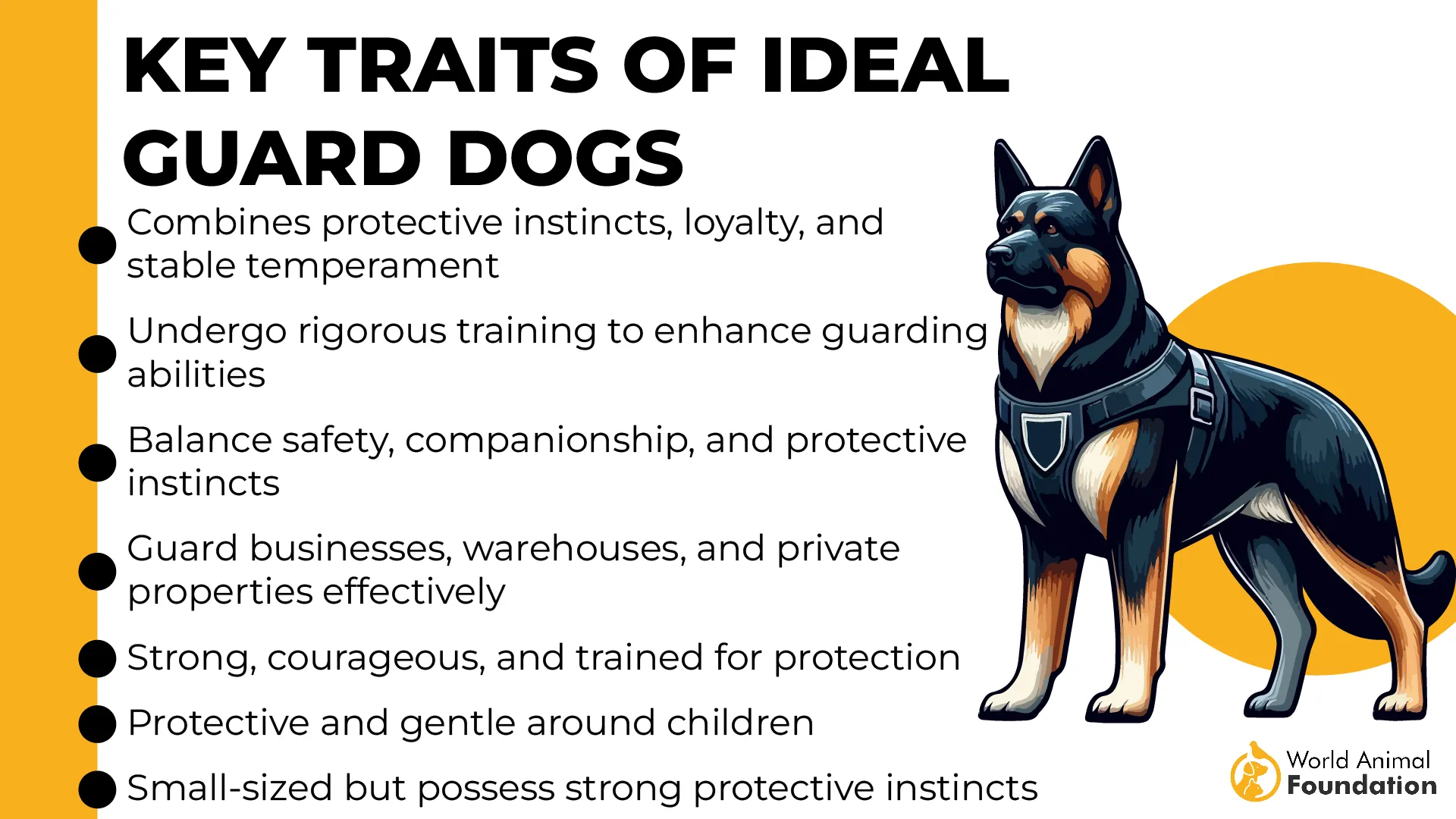
German Shepherds are highly intelligent, capable of learning complex tasks quickly. They thrive when given purpose, whether it’s advanced obedience, agility, or specialized work. Without stimulation, however, they can become restless and destructive.
Socialization is essential to balance their protective instincts. Introducing them to varied environments and people early helps them grow into confident, well-adjusted adults. This careful development ensures they are both safe and dependable companions.

While known for their bravery, German Shepherds are also deeply empathetic. They form strong emotional bonds and often anticipate their owner’s needs, making them both fearless protectors and affectionate family members.
Quick Tips
Incorporate mental challenges like puzzle toys or training drills.
Start socialization young to build confidence and balance.
3. Great Pyrenees
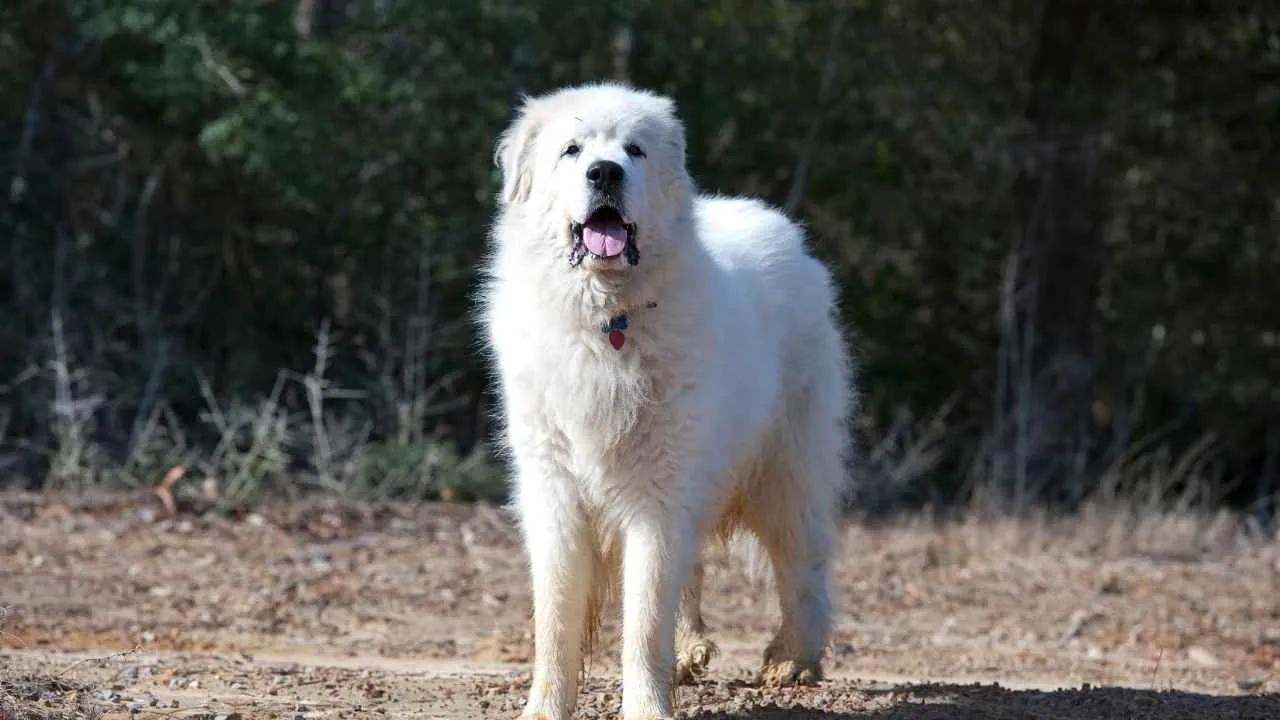
The Great Pyrenees has a long history as a livestock guardian, bred to defend flocks from wolves and bears in the mountains of France and Spain. Their protective instincts are deeply ingrained, making them natural guardians of both animals and people.
Despite their imposing size, these dogs are gentle giants with families. They are calm, affectionate, and particularly patient with children. This balance of gentleness and vigilance makes them well-suited for both companionship and protective roles.
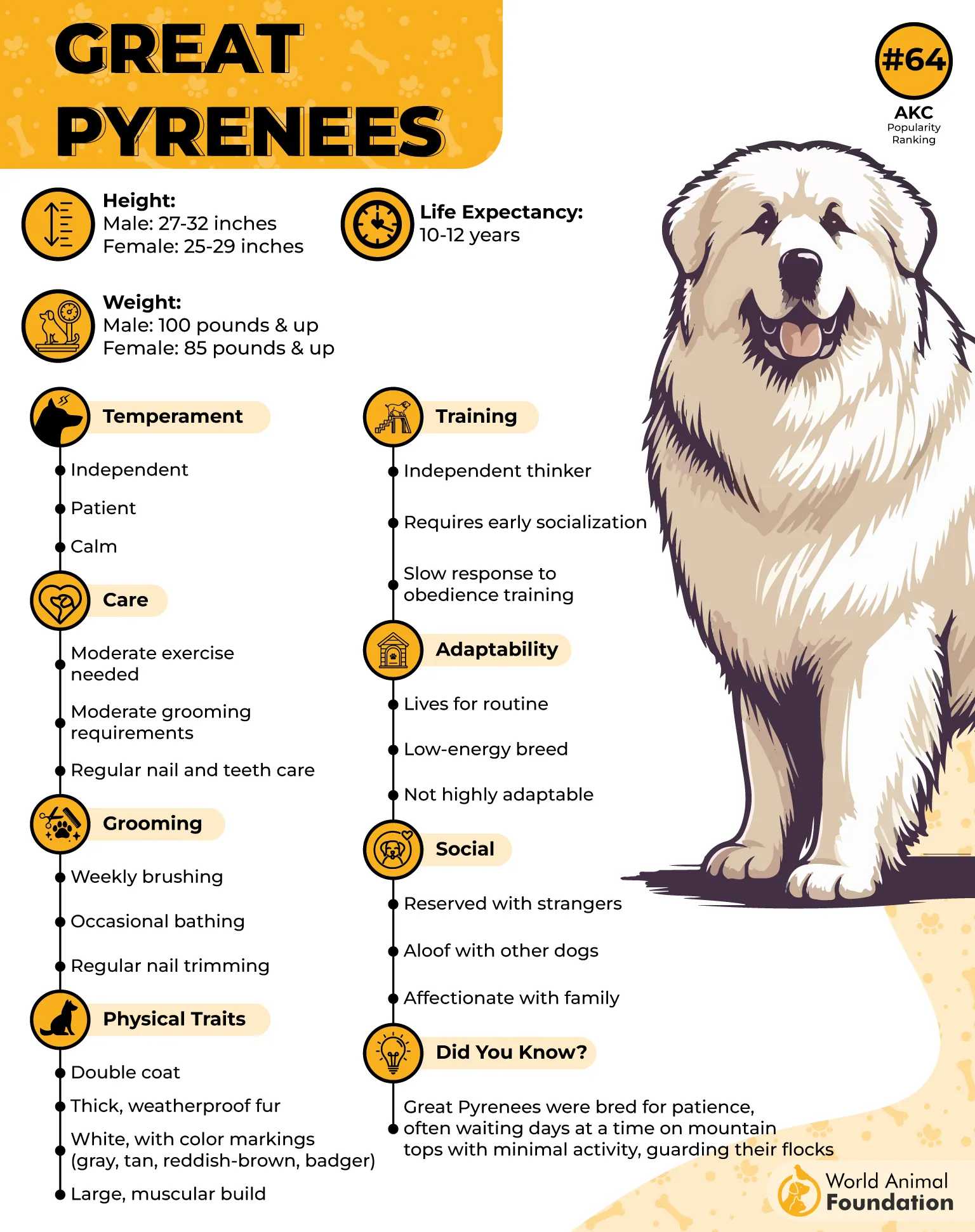
Independence is a defining trait of the breed. They are used to making decisions while working alone in pastures, which sometimes translates into stubbornness. Owners should be prepared for a dog that thinks for itself.
While protective, Great Pyrenees are not overly aggressive. They are more likely to use their booming bark as a warning, only resorting to physical defense when necessary. This approach makes them effective yet controlled guardians.
Their thick double coats allow them to thrive in colder climates but require regular grooming. Families considering this breed should also prepare for their strong territorial instincts, as they may patrol yards diligently.
Quick Tips
Provide secure fencing to accommodate their territorial patrolling.
Brush regularly to manage heavy shedding and maintain coat health.
4. Doberman Pinscher
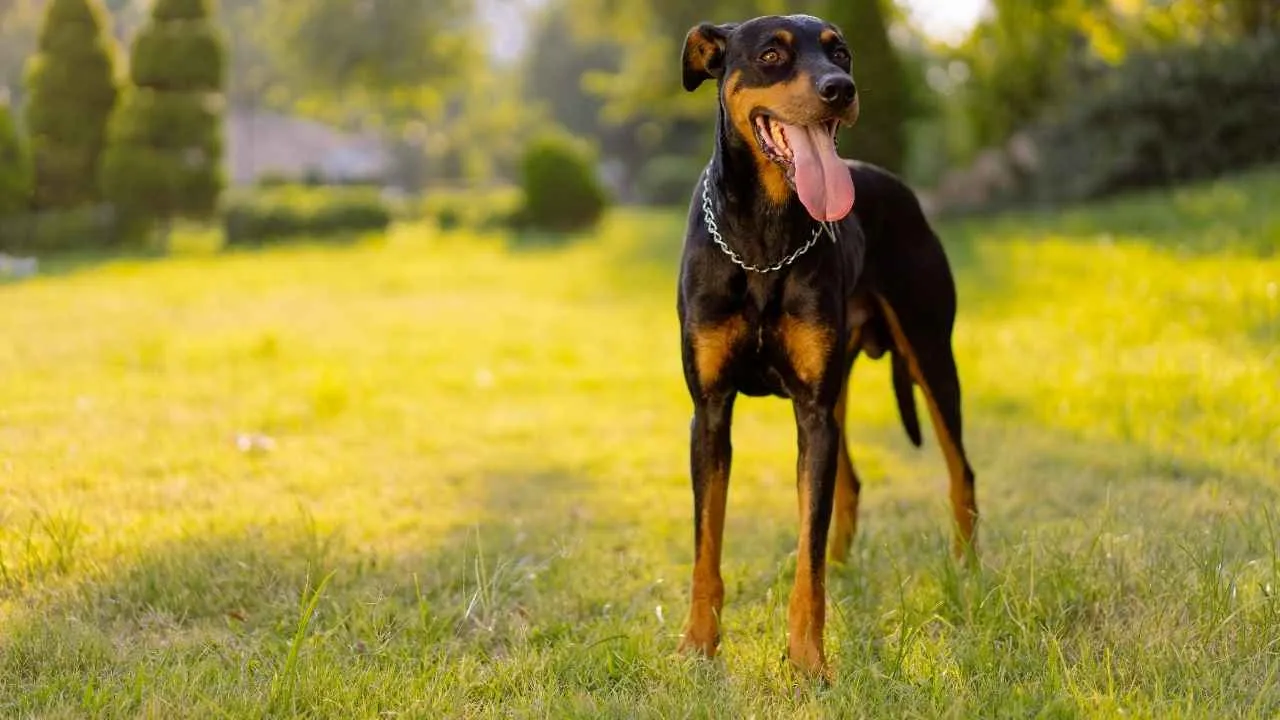
Doberman Pinschers are widely recognized as one of the most fearless dog breeds, bred originally in Germany to serve as both protectors and companions. Their sleek build, athletic agility, and keen senses make them a natural choice for guarding roles. They’re not only powerful but also remarkably loyal to their families.
With their sharp intelligence, Dobermans learn commands and routines quickly. They thrive when given structured training, excelling in obedience and advanced tasks. Their ability to combine physical strength with mental acuity sets them apart as one of the most effective guard breeds.
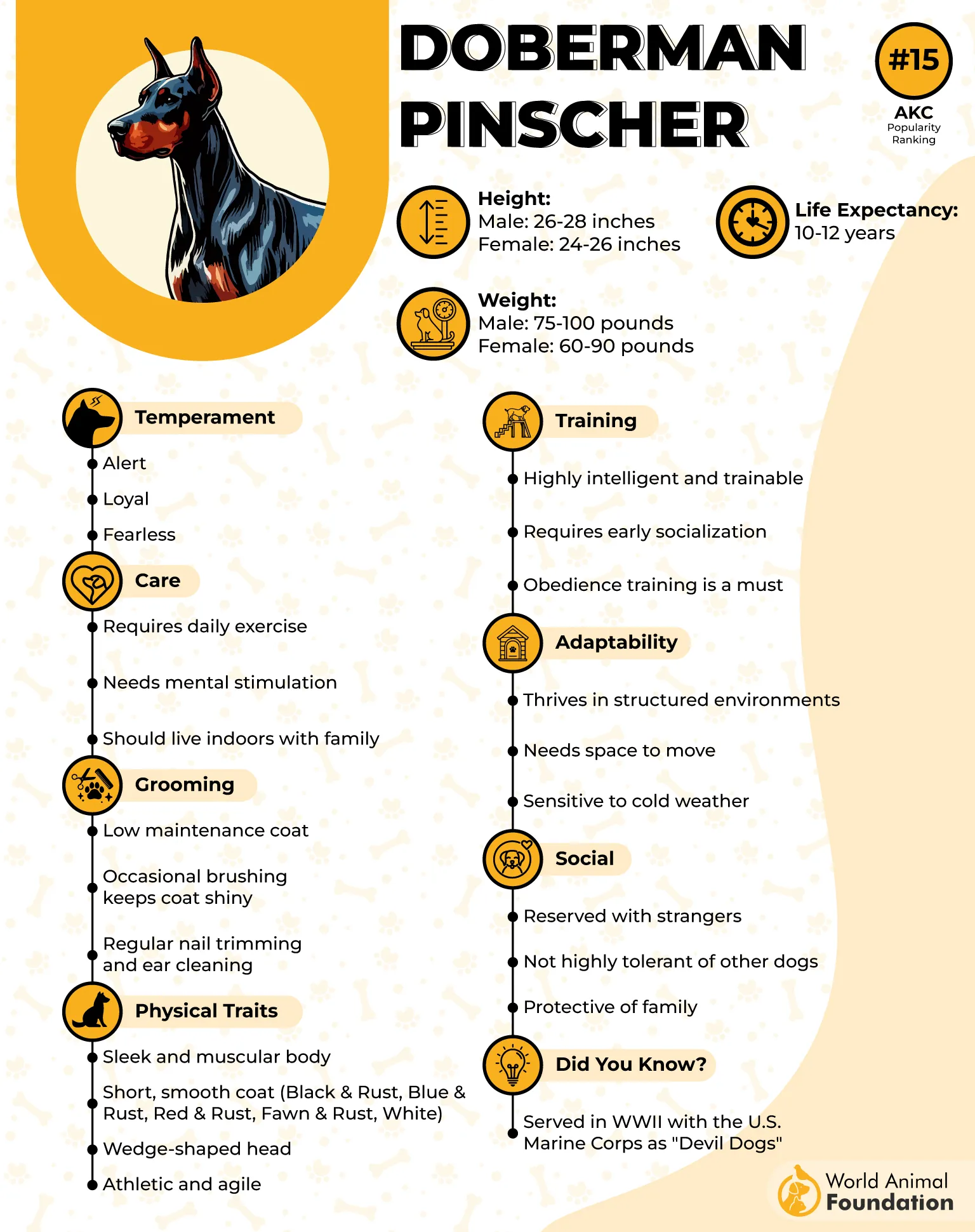
Though naturally protective, Dobermans are affectionate with their families. They enjoy bonding closely with their owners and often crave attention and companionship. This makes them not only guardians but also loving household members.
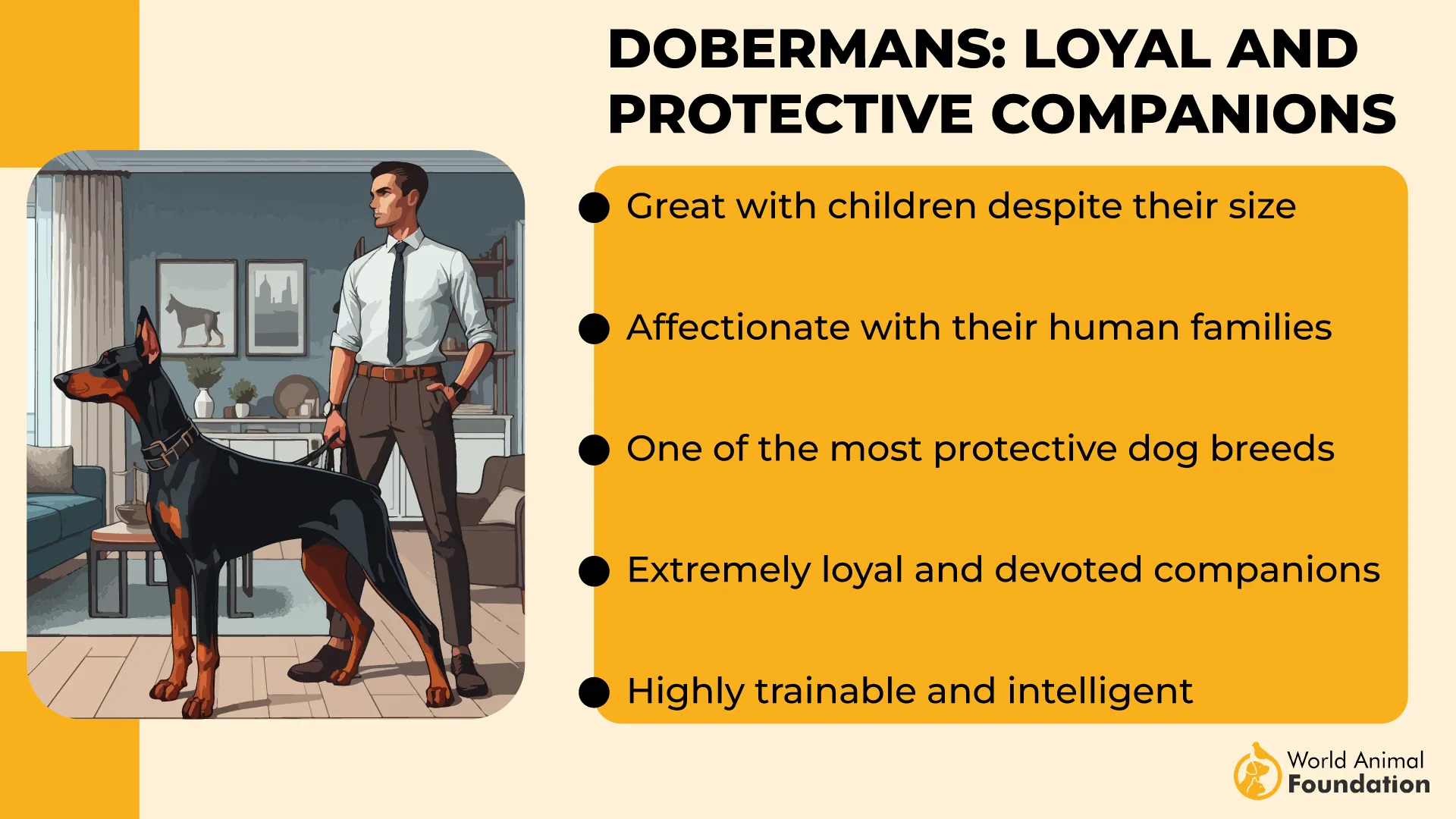
Their bravery in the face of danger has earned them a place among the world’s bravest breeds. Many police and military units choose Dobermans for their combination of courage, stamina, and trainability. They respond instinctively to threats, yet with proper guidance, they show measured restraint.
Because of their high energy levels, they require daily exercise and engagement, as noted by WebMD. Without these outlets, Dobermans may become restless or frustrated. Active families who can provide consistent activity and leadership find them to be unmatched companions.
Quick Tips
Dedicate time each day to exercise and training.
Socialize early to balance protectiveness with confidence.
5. Belgian Malinois
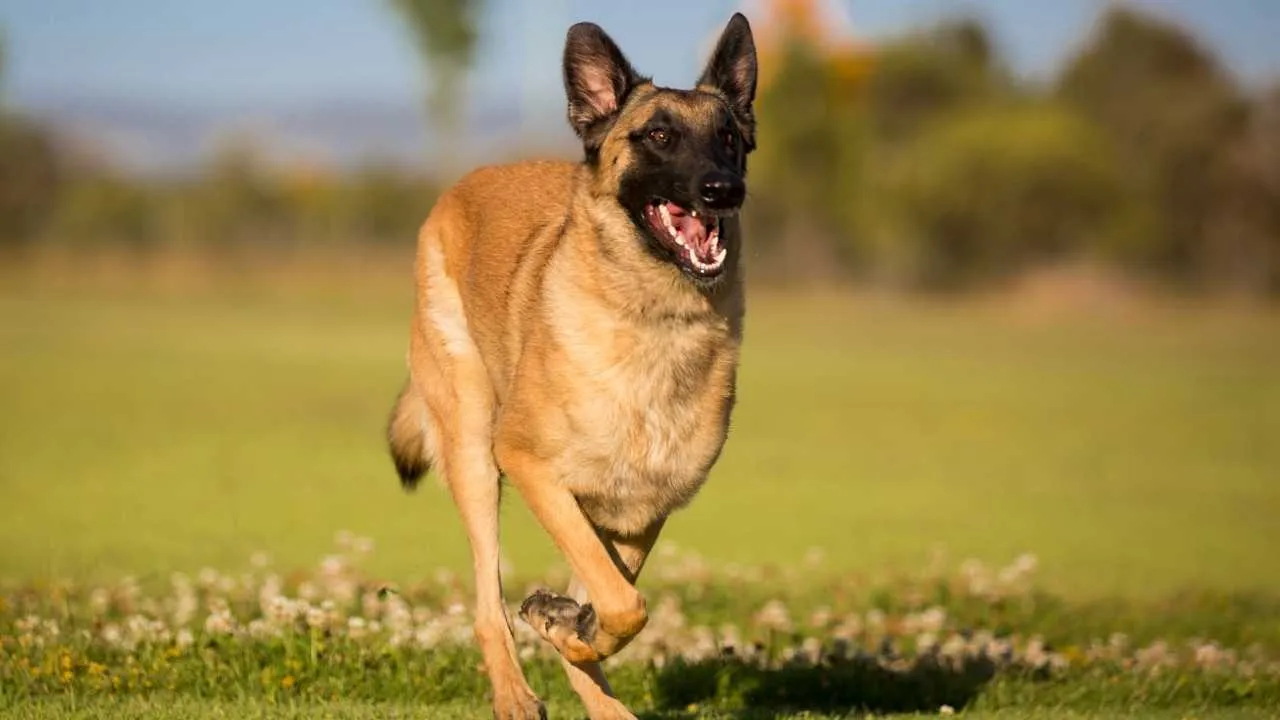
The Belgian Malinois is a powerhouse of energy and determination, originally bred for herding but now renowned worldwide for its service in police and military work. Their speed, agility, and drive make them a favorite in high-demand roles.
Highly intelligent, Malinois thrive when challenged mentally and physically. They excel in advanced obedience, agility, and specialized training such as detection work. Their need for activity means they are best suited for active, dedicated owners.
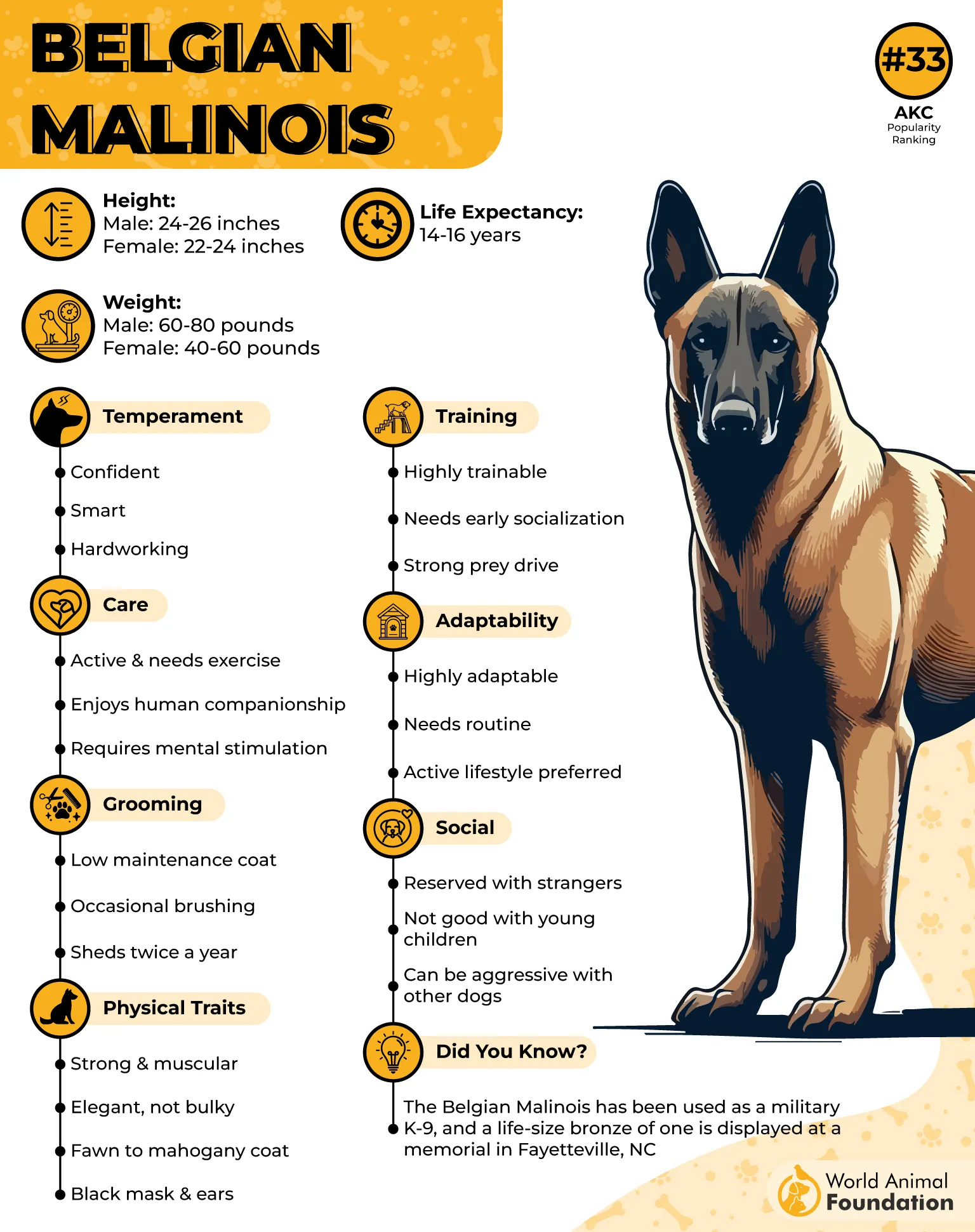
Bravery is deeply ingrained in this breed, as they will not hesitate to face danger head-on. Their protective nature, combined with loyalty, makes them reliable guardians of both families and professionals in the field.
Despite their working reputation, Belgian Malinois are affectionate with their families. They form strong bonds and are happiest when included in daily life. However, their intensity may be overwhelming for first-time dog owners.
With proper training, they strike an ideal balance of protection and companionship. Owners who provide purpose and structure will discover an unmatched partner capable of incredible feats.
Quick Tips
Provide structured activities to channel high energy.
Ensure early socialization to prevent over-guarding.
6. Akita
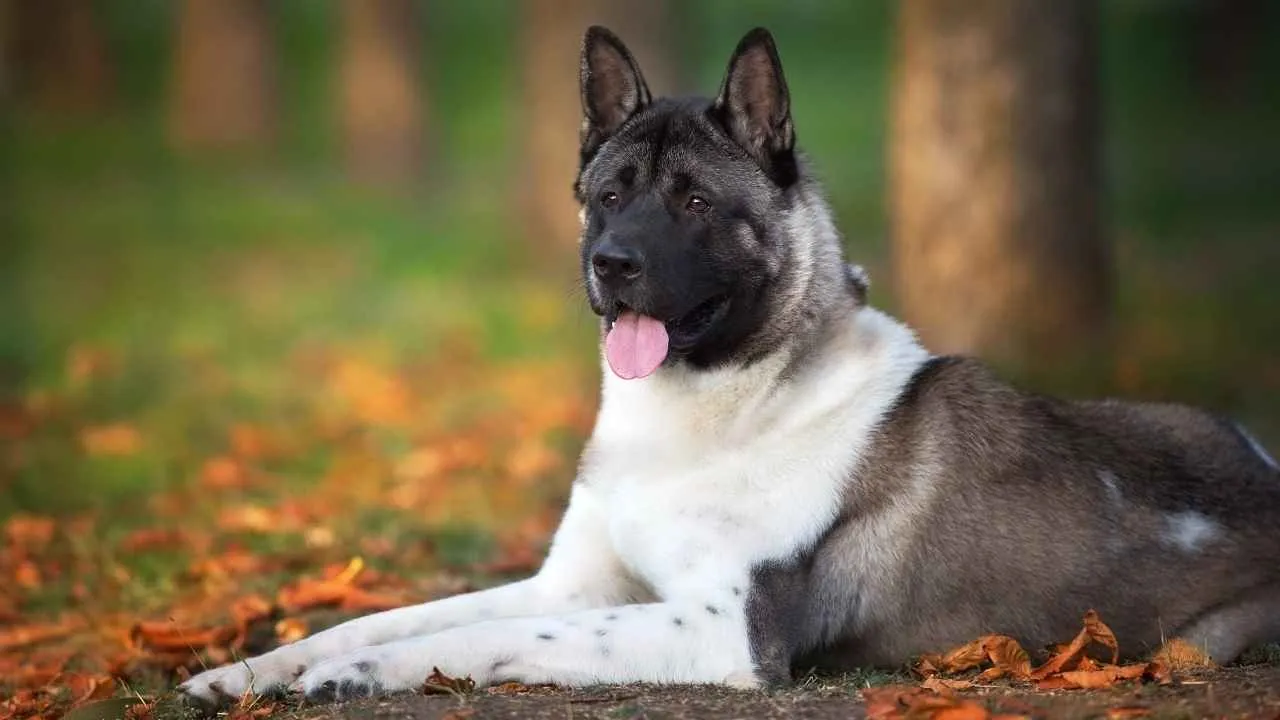
The Akita is a Japanese breed known for its courage and deep loyalty to family. Historically, they were guardians of royalty and property, admired for their strength and independence. Their bold personality makes them naturally protective and highly respected.
Britannica mentions that Akitas are alert and confident, often wary of strangers. This instinct makes them exceptional watchdogs, as they remain calm until a real threat arises. Their quiet vigilance is one of their most notable traits.
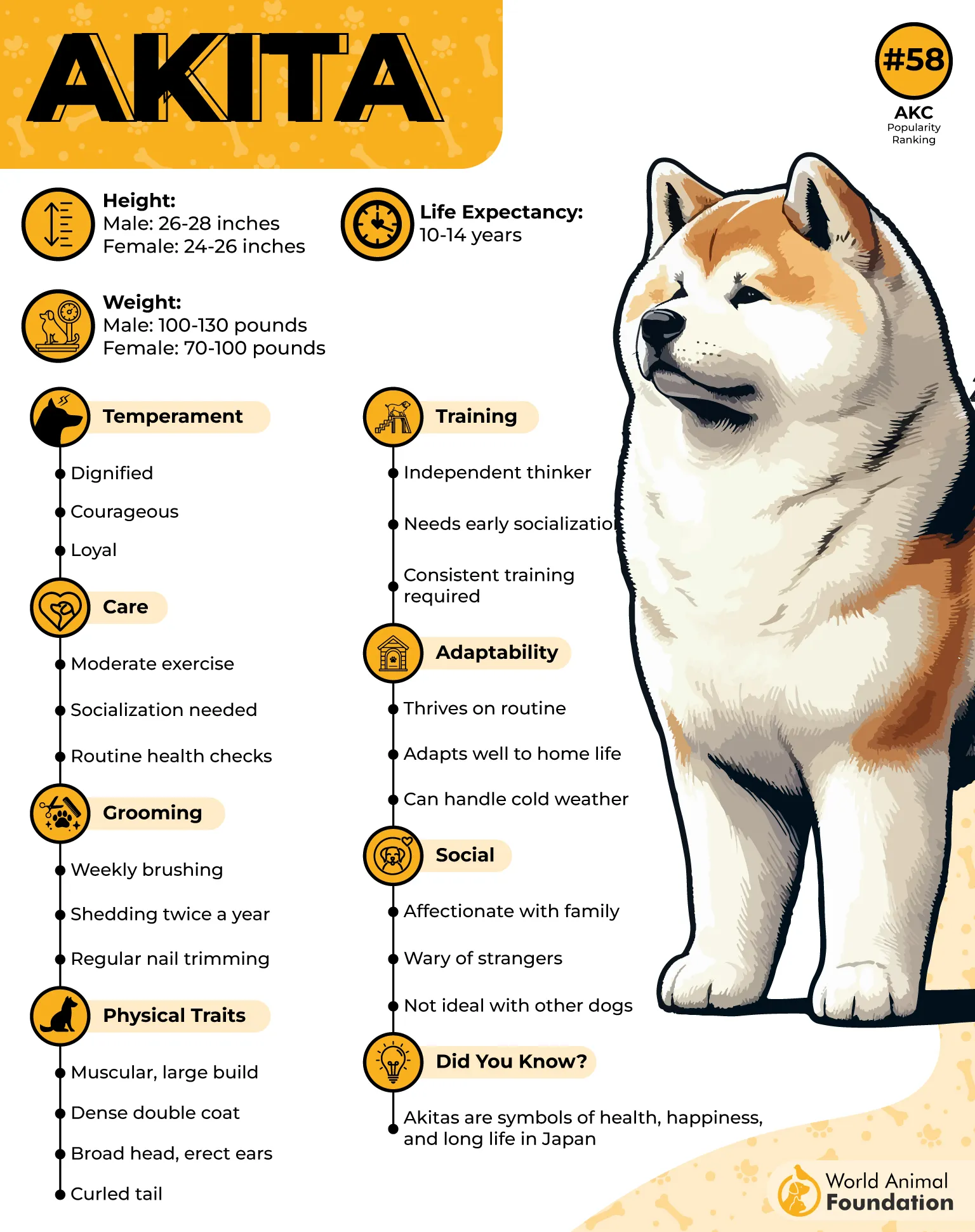
While protective, Akitas are affectionate with those they trust. They form strong bonds with their families and are especially gentle with children when raised alongside them. Their combination of dignity and devotion makes them unique among guard breeds.
Bravery is a hallmark of the Akita, as they do not shy away from challenges. Their fearlessness, combined with their imposing size, gives them a commanding presence that deters intruders.
Training requires patience and consistency, as Akitas are strong-willed. Clear leadership helps them thrive, ensuring their protective instincts remain balanced and reliable.
Quick Tips
Establish consistent training from an early age.
Supervise interactions with other pets due to strong guarding instincts.
7. Boxer
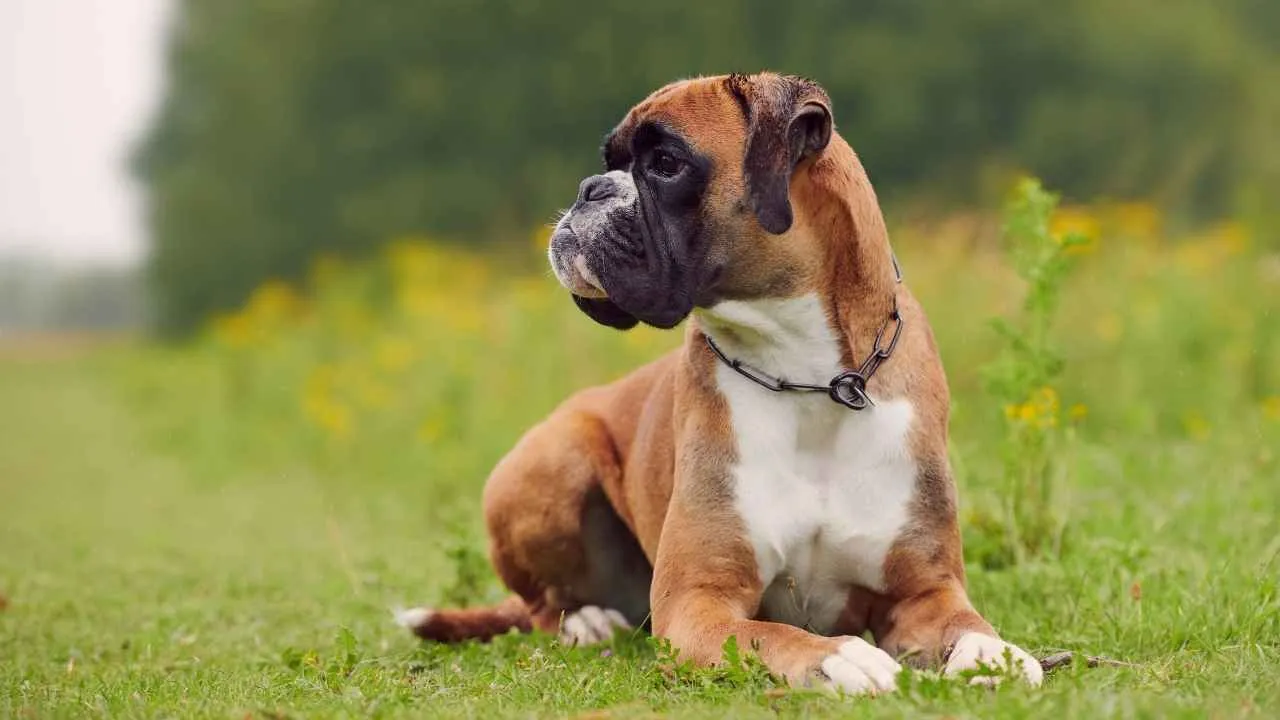
Boxers are known for their playful personalities combined with a brave, protective side. Originally bred as working dogs, they bring both energy and loyalty to family life. Their athletic build and high energy make them both fun companions and reliable guardians.
Courage defines the breed, as they have long been recognized among the bravest dog breeds. They face danger with confidence, showing both alertness and determination when their families are at risk.
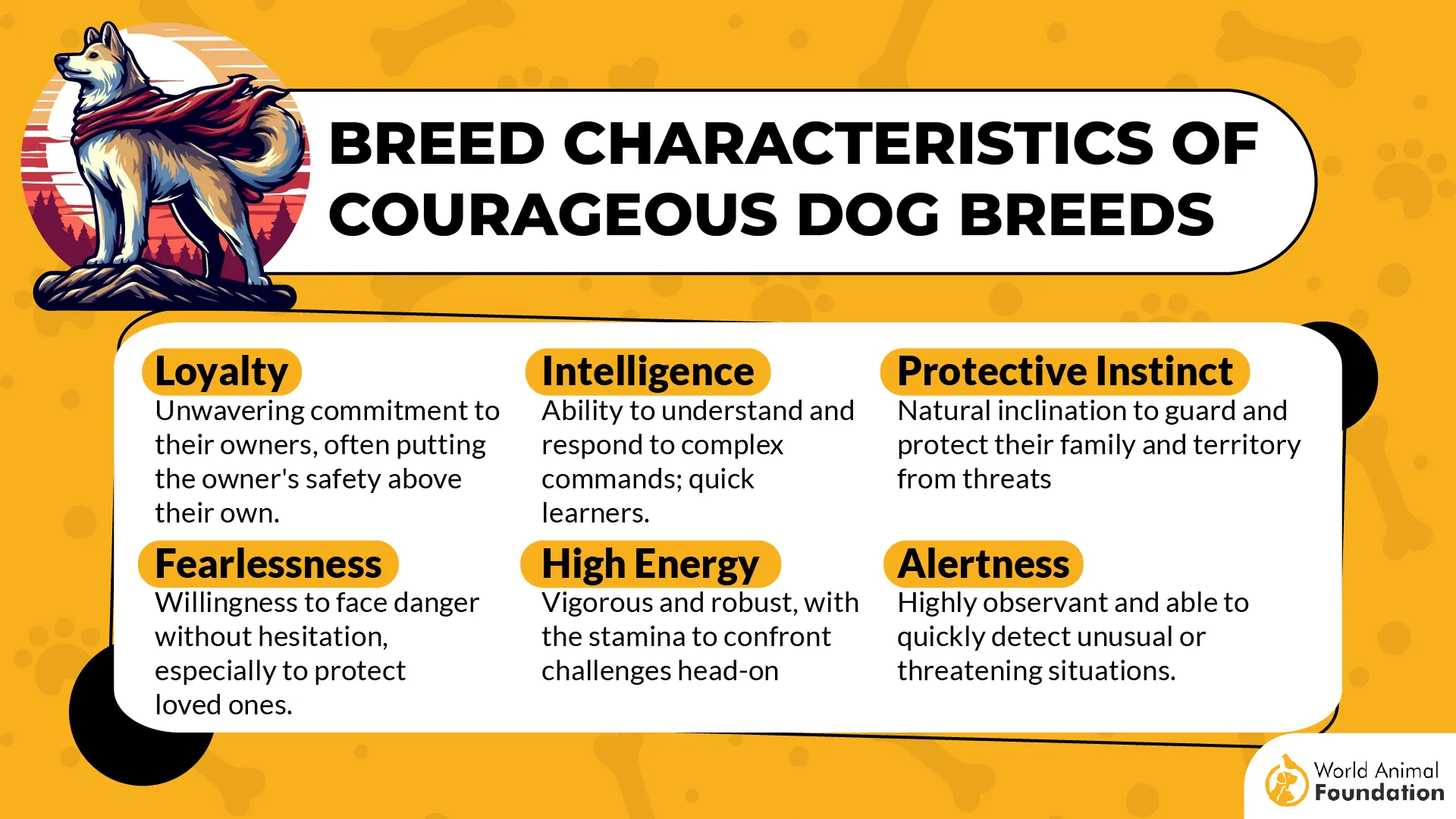
Despite their protective side, Boxers are famously affectionate and patient with children. Their friendly, clownish nature makes them beloved family pets, balancing bravery with warmth. This duality allows them to be both guardians and joyful companions.
They are intelligent and trainable, though sometimes mischievous. Consistent, positive training helps channel their energy into constructive activities while reinforcing obedience. Without enough activity, they may become restless.
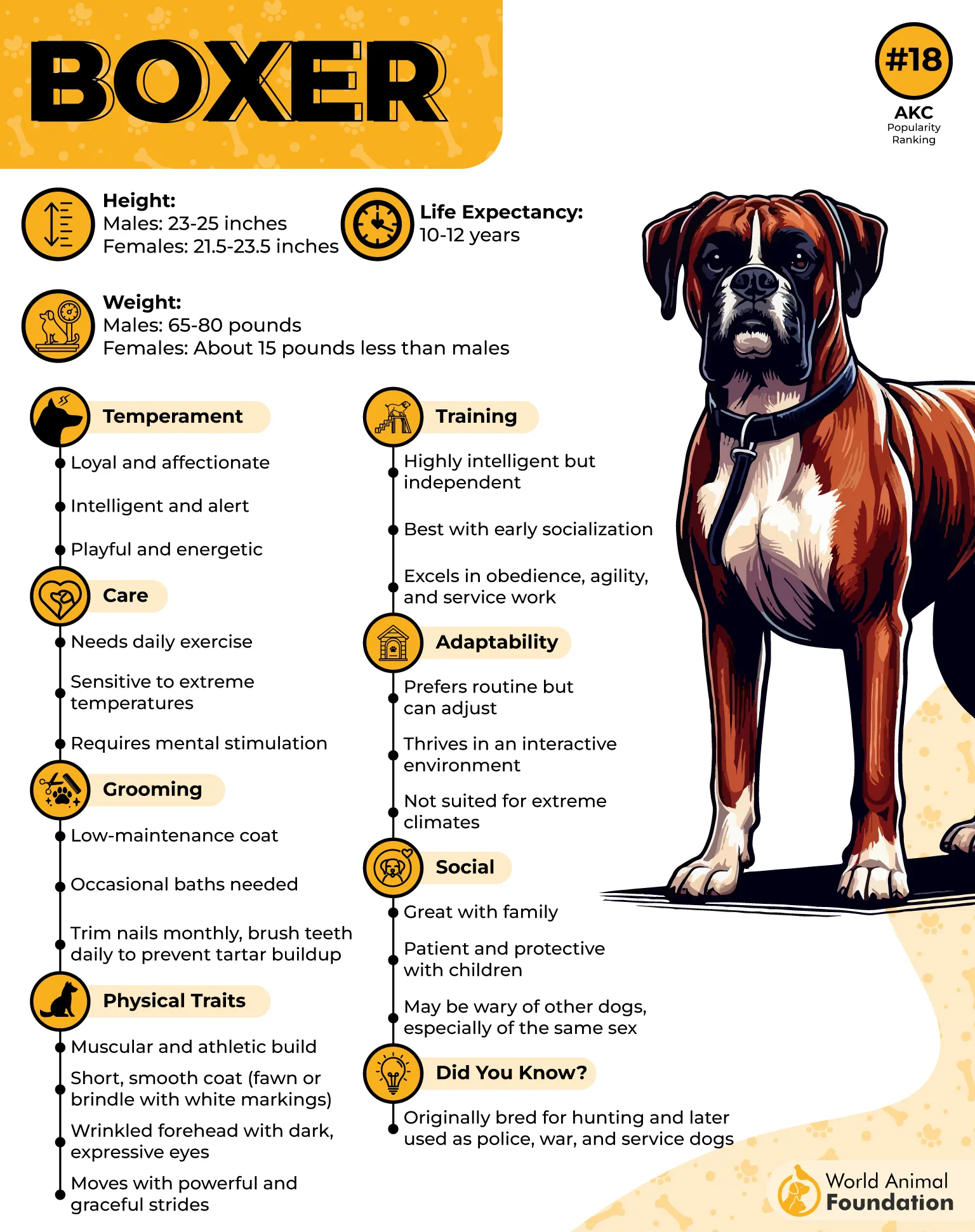
Boxers are natural watchdogs, using their keen senses to monitor their environment. Their loyalty ensures they remain by their family’s side, blending protective instincts with a fun-loving personality.
Quick Tips
Incorporate plenty of play and structured exercise.
Use positive reinforcement to guide training effectively.
Conclusion
Protective dogs have been valued throughout history for their courage, loyalty, and ability to keep families safe.
Beyond the breeds already discussed, other breeds such as Rottweilers, Rhodesian Ridgebacks, Tibetan Mastiffs, and Giant Schnauzers are renowned as excellent guard dogs with natural protective instincts.
These athletic dogs often have the instinct to protect, whether that means standing watch over a home or helping farmers guard estates. Some, like the Ridgeback, were even bred to hunt lions, showcasing their fearless nature and tough exterior.
With proper socialization, these breeds balance their fiercely protective roles with the ability to be loving companions and great family pets, especially with children.
When properly trained, they develop into exceptional protectors, well-behaved, highly trainable, and incredibly loyal.
Pairing regular exercise, mental stimulation, and positive training and socialization ensures these loyal dog breeds remain devoted companions with a calm demeanor and strong protective instincts without slipping into unnecessary aggression.


